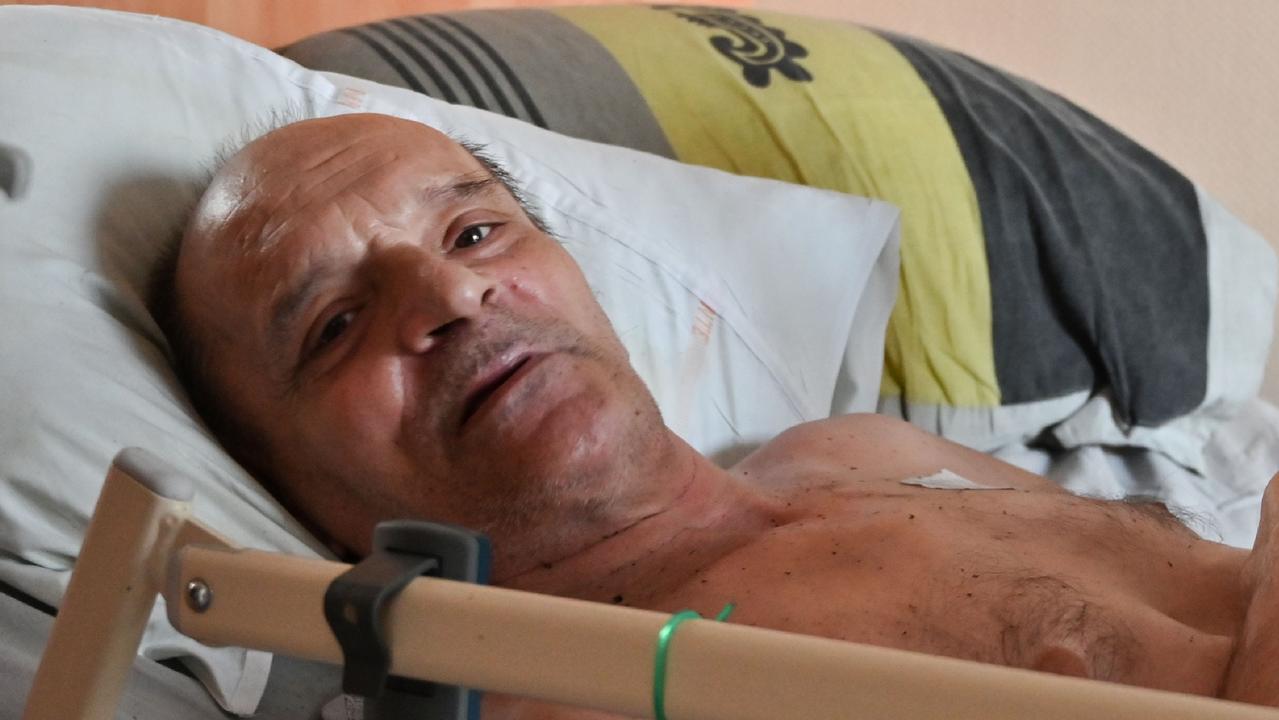Facebook bans road safety ad it says is ‘too gory’
Terror can be live streamed but social media giant Facebook has banned Australian road safety authorities from posting ads featuring crash test dummies.
Online Censorship
Don't miss out on the headlines from Online Censorship. Followed categories will be added to My News.
Exclusive: Terror can be live streamed but social media giant Facebook has banned Australian road safety authorities from posting ads featuring crash test dummies because the content is considered too “gory” and “sensational”.
ANCAP - the Australasian New Car Assessment Program - crash tests cars sold in Australia and publishes star ratings based on how well they protect occupants.
But today, ANCAP revealed it had been blocked from posting advertisements using crash test dummies.
Facebook, which live-streamed shocking content including the massacre in Christchurch, said the adverts were too violent.

The revelations come a day after the Herald Sun revealed breast cancer survivors had been banned by Facebook for their advertising campaign aiming to raise awareness of the disease.
Ten cancer survivors, nine of them women, had gone topless to raise money and awareness for Breast Cancer Network Australia but Facebook ruled the adverts in violation of its “nudity” policy.
ANCAP says the social media giant blocked it from using crash tests in advertising on Facebook.
In advising ANCAP of the move, Facebook said “we don’t allow ads that feature scary, gory or sensational content like vehicle collisions and accidents”.

Facebook staff told ANCAP that “shocking, disrespectful or sensational content” was not allowed on the site.
“Your ad … can’t feature sensational or graphic content (even if it’s for an artistic or education reason) because of their highly sensitive nature,” it said.
Facebook declined to comment on specifics of the ANCAP ad.
But it is believed the distinction Facebook draws is between “organic” content posted by users and paid content by advertisers.
While the individual user is free to tailor their content to their likes and dislikes, Facebook steps in when paid content is being sent to users.
The argument is that Facebook protects its advertisers from inadvertently posting material that would offend some users.

In the case of the Bakers’ Delight ad, which was helping to raise awareness and funds for Breast Cancer Network Australia, those users included religious and cultural groups, while in the case of ANCAP, the ads could have a negative impact on a user who had lost a loved one in a car accident.
Facebook spokeswoman Antonia Sanda said: “We are working hard on both sides (organic and commercial) to make sure that we provide a good user experience for our community,” she said.
ANCAP’s ‘Safer Vehicle Choices Save Lives’ campaign originally ran in July 2018. Facebook blocked the safety body from re-posting the video in January.
The campaign aimed to make people aware of the superior crash protection offered by modern cars.
It shows drivers behind the wheel of a new Toyota Corolla and a 21-year-old used example.
A head-on collision of the cars conducted in a laboratory shows a crash test dummy slamming into the dashboard of the 1998 Corolla.

ANCAP chief executive James Goodwin said thought-provoking advertising was an important road safety tool, and that advertisements such as the Victorian TAC’s mid-1990s “Night Shift” ads featuring a drowsy driver at the wheel of a VW Kombi were a wake-up call for Australian drivers.
“In this new era of media or social media, how do we get road safety messages out there if they are too shocking?” he said.
“Are we facing a time where the ‘VW Combi into the truck’ ad can no longer happen?”
Road authorities have been frustrated by a rising road toll in 2019.
Some 332 people died on Australian roads in the first three months of the year, a national increase of 31 fatalities.
Road deaths in Victoria and South Australia, inparticular, rose dramatically in the January to March period from 2018 to 2019.
In Victoria, deaths increased from 56 to 81, an increase of 44.6 and in South Australia, for this period deaths rose from 19 to 30 - an increase of 57.9 per cent.
Originally published as Facebook bans road safety ad it says is ‘too gory’


